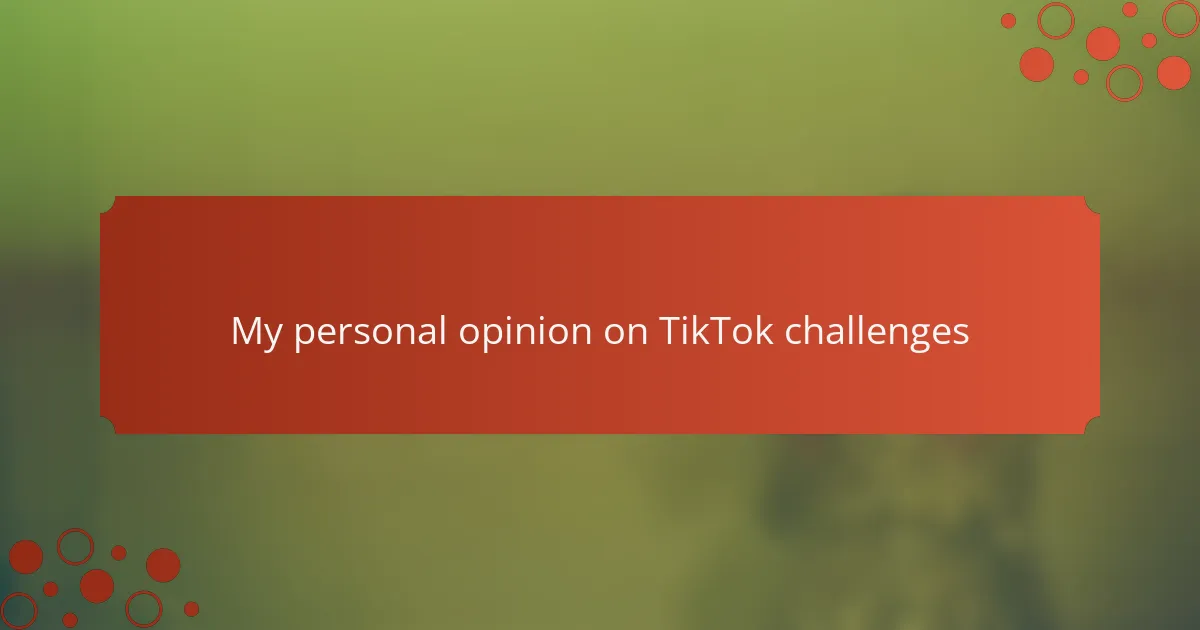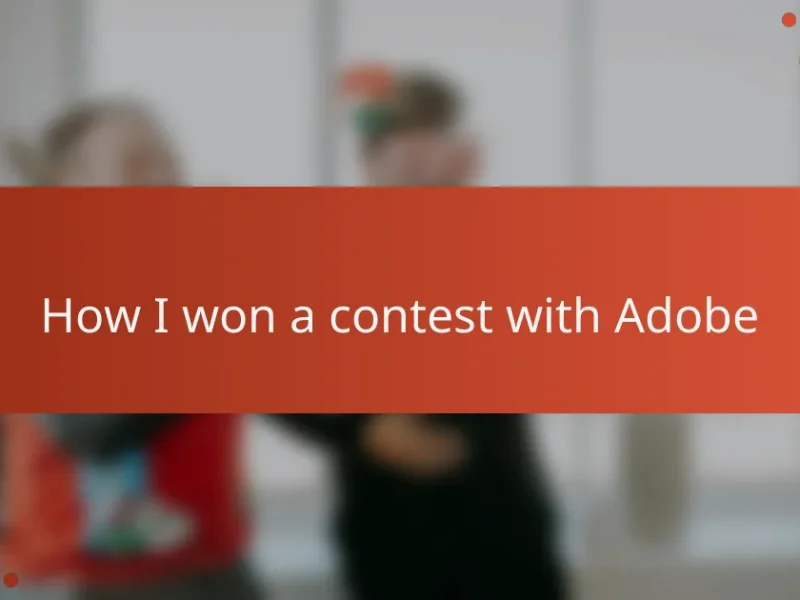Key takeaways
- TikTok challenges foster creativity and social connection, allowing users to express themselves regardless of skill level.
- Popular challenge formats include dance contests, lip-syncing, transformation videos, and duet challenges that encourage collaboration.
- Safety and ethical considerations are crucial when participating in challenges, as some may unintentionally harm or exclude others.
- Participation in challenges can promote self-expression and confidence, but it’s important to engage from genuine interest rather than peer pressure.
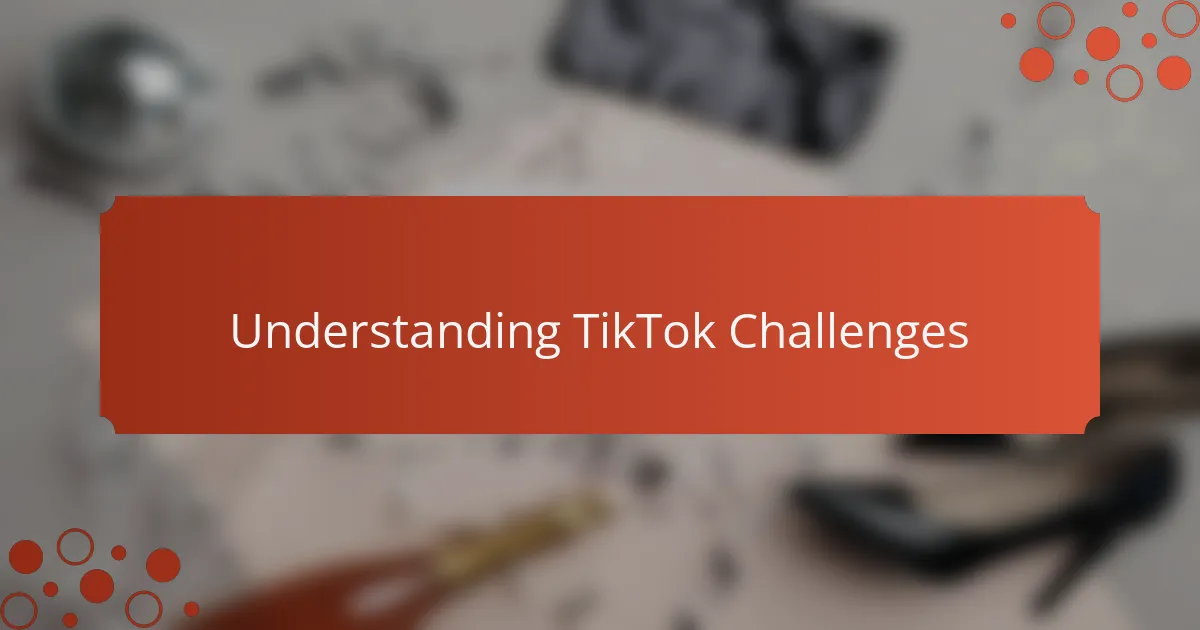
Understanding TikTok Challenges
TikTok challenges are a fascinating blend of creativity and social connection, often inviting users to mimic or innovate specific actions set to catchy music or themes. I remember joining a dance challenge that swept through my friend circle; it was thrilling to see how each person’s interpretation added a unique flavor to the trend. Have you ever wondered what makes some challenges go viral while others quietly fade away?
From my experience, the appeal lies in their simplicity and the sense of belonging they foster. These challenges create a digital space where anyone can participate, breaking down barriers of skill or popularity. What’s striking to me is how a single idea can ripple across millions, sparking joy, competition, or even meaningful conversations.
Understanding TikTok challenges means seeing beyond the fun—they are social phenomena that tap into our desire for interaction and recognition. I find it interesting how they can reflect cultural shifts and collective moods, sometimes even influencing mainstream entertainment. Have you noticed how some challenges linger in your mind long after the video ends? That’s the power these trends hold.
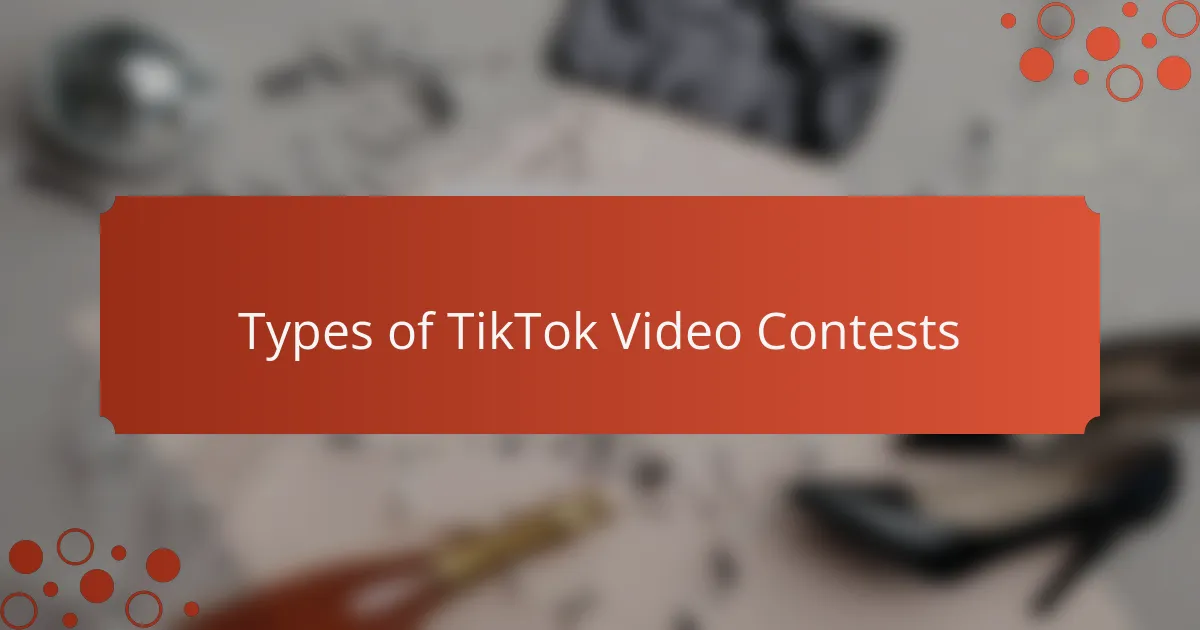
Types of TikTok Video Contests
When it comes to TikTok video contests, I’ve noticed there are a few popular types that really capture the community’s attention. Dance competitions are huge, of course, where participants try to master or reinvent the moves from a trending routine. I’ve tried one myself, and it’s surprising how even small tweaks in a step can make your video stand out among thousands.
Another type I find fascinating is the lip-sync or acting challenges. These require you to sync perfectly with a sound or re-enact a scene, which tests both timing and creativity. Have you ever tried to nail that perfect expression on camera? It’s tougher than it looks, and that little struggle is what makes the best videos memorable.
Then there are themed contests that revolve around storytelling or special skills—like cooking hacks or magic tricks. These feel more personal to me because they allow creators to share a part of themselves beyond just choreography or acting. It’s refreshing to see how diverse and inventive the community can be when given a spark of inspiration.
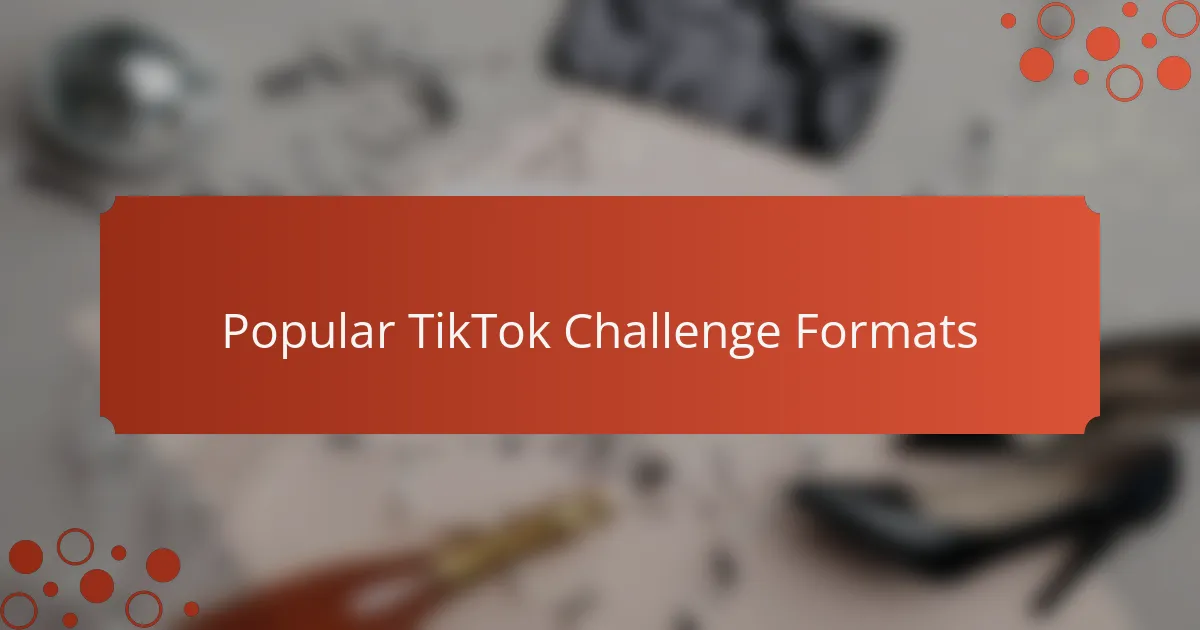
Popular TikTok Challenge Formats
One of the most popular TikTok challenge formats that always catches my attention is the dance challenge. I remember jumping into one that was trending last summer—what struck me was how a simple set of moves could unite so many people worldwide. Have you ever tried to learn a dance through TikTok? It’s amazing how everyone adds their own twist, making the same routine feel fresh every time.
Then there are transformation challenges, which I find oddly satisfying. These usually start with a casual look and then switch dramatically—maybe a glamorous outfit or a bold makeup change. I tried one once, and the rush of seeing myself change with just a snap was pretty addictive. Why do you think we all enjoy that kind of instant makeover magic?
Finally, I can’t ignore the duet or reaction challenges, where users respond to or build on someone else’s video. To me, this format perfectly captures TikTok’s community spirit—it’s like having a conversation but through clips and creativity. Have you joined a duet challenge yet? I bet you noticed how it turns a single idea into a collaborative masterpiece.

Evaluating Challenge Safety and Ethics
When I first saw a risky TikTok challenge trending, it made me stop and think: is this really safe for everyone involved? Safety isn’t just about avoiding physical harm; it’s also about thinking through what consequences might come from a seemingly harmless dare. Have you ever questioned whether the thrill is worth the risk?
Ethics play a huge role too. Some challenges blur lines—encouraging actions that might embarrass, exclude, or even harm others unintentionally. I’ve witnessed how a well-intended trend can spiral into something problematic when people don’t pause to consider the impact on diverse viewers. Isn’t it important that we hold ourselves accountable when joining these viral waves?
From my perspective, evaluating both safety and ethics is a crucial practice before jumping in. It’s like asking, “Would I be comfortable if someone I cared about tried this?” If the answer feels uncertain, that’s a clear sign to reconsider participation. This mindset not only protects us but keeps the creative space positive and inclusive for everyone.
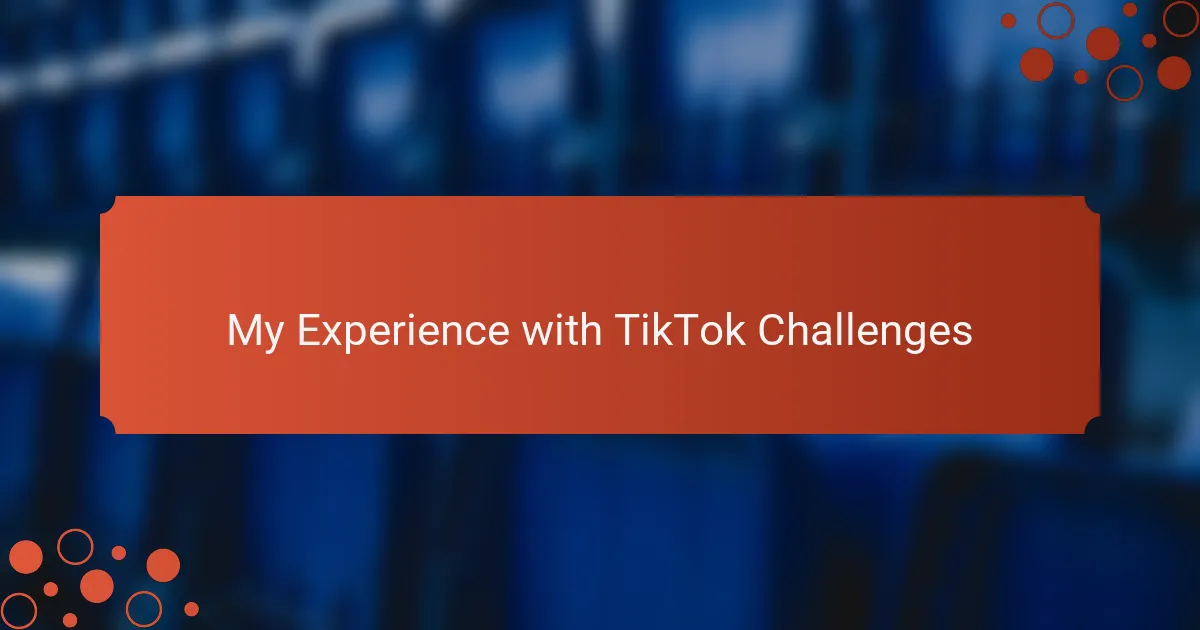
My Experience with TikTok Challenges
My first foray into TikTok challenges was a mix of excitement and awkwardness. I remember attempting a popular dance trend and laughing at myself when I missed a step, but that didn’t stop me—there was something energizing about joining millions in the same virtual movement. Have you ever felt that thrill of being part of a massive, collective moment even through a tiny clip on your phone?
Sometimes, challenges pushed me out of my comfort zone. I recall trying a comedic lip-sync, not because I’m naturally funny, but because it felt like a personal dare to be playful and silly in front of strangers. It taught me that TikTok challenges are more than just trends—they’re little experiments in self-expression and confidence, wouldn’t you agree?
On the flip side, not every challenge felt right to me. There were moments I hesitated, wondering if chasing the latest hype was genuinely worth it or if I was just succumbing to peer pressure. That reflection helped me appreciate that participation should come from genuine interest, not just the fear of missing out. Have you experienced that hesitation before diving into a new challenge?
